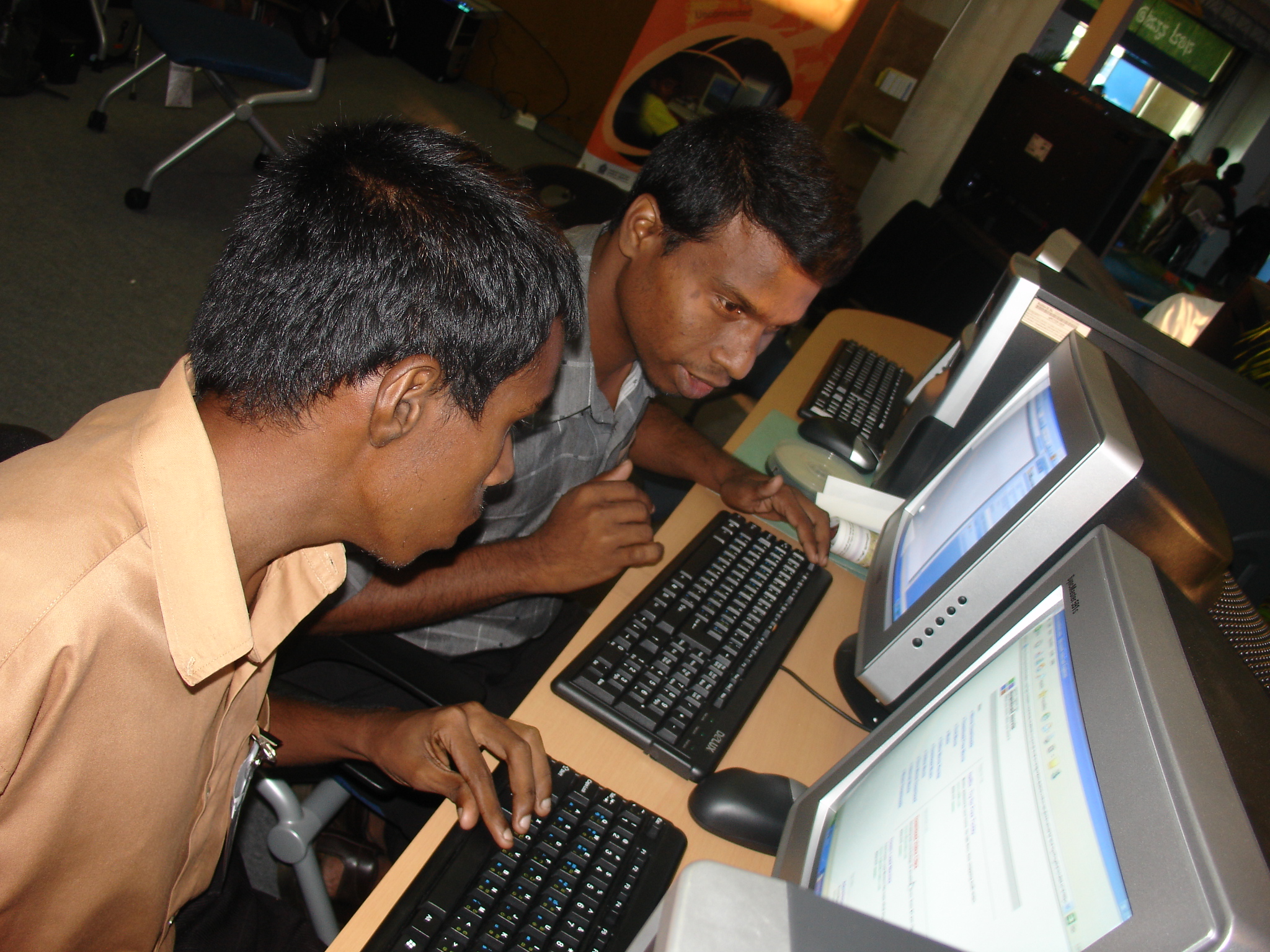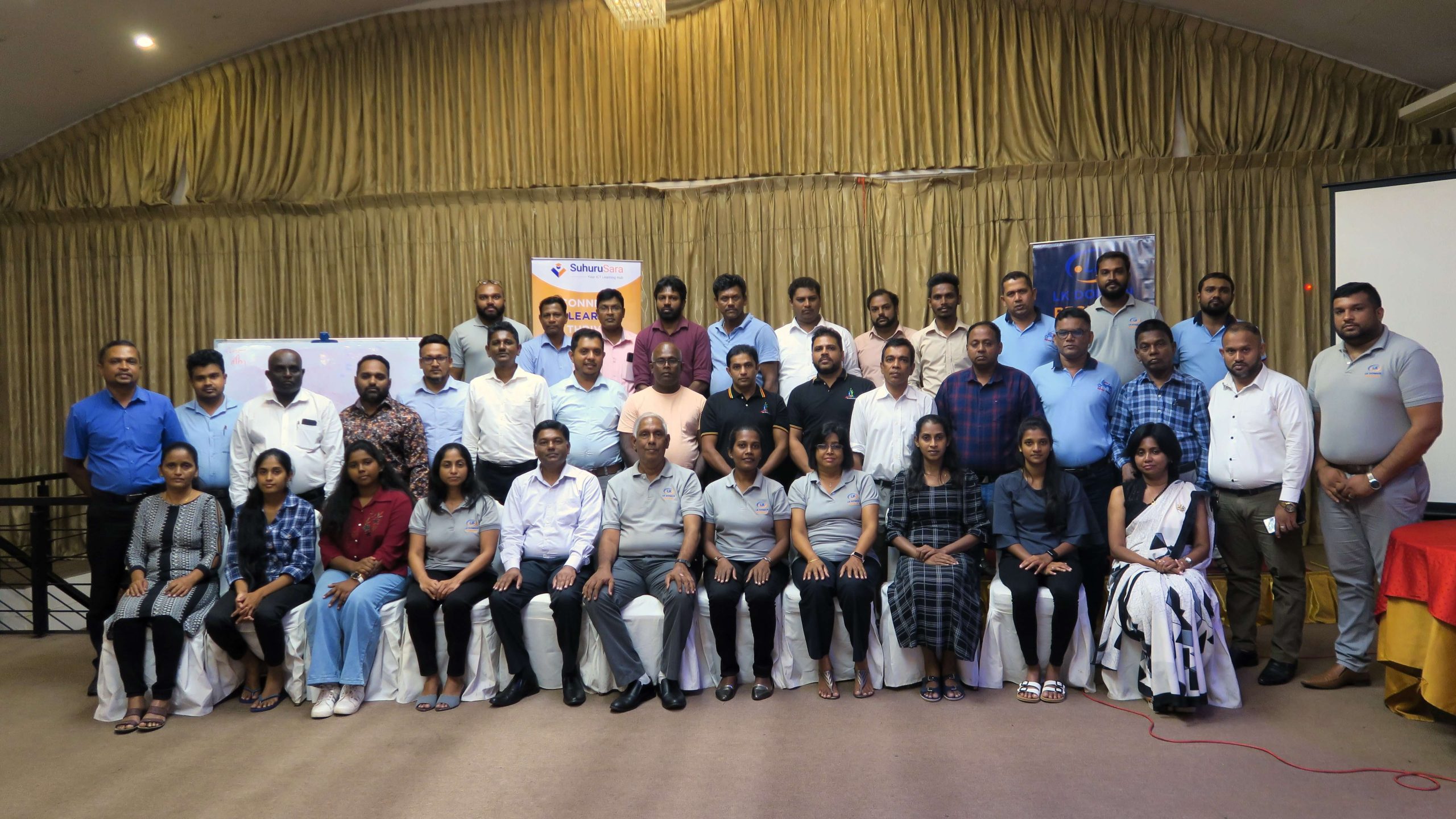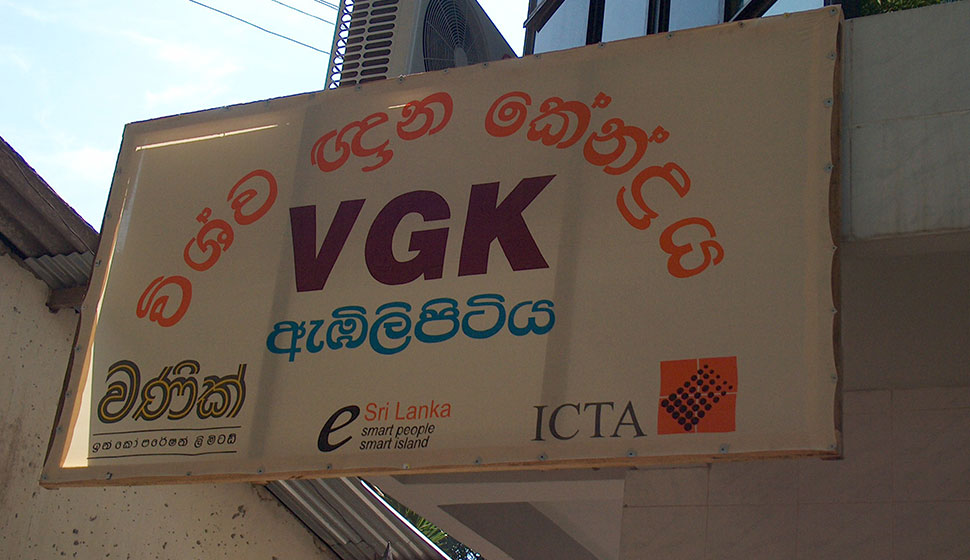Organization
Lorem ipsum dolor sit amet, consectetur adipiscing elit, sed do eiusmod tempor incididunt ut labore et dolore magna aliqua.
The Nenasala centers established throughout Sri Lanka program provided access to information, relevant content and knowledge. These multi service centers set up in convenient locations, provided public access to information and communication services.
Originally this project was termed the Vishwa Gnana Kendra (VGK) – Global Knowledge Centers - project. A fledgling center was set up in early 2003 within the premises of CINTEC, the predecessor of the ICTA. The VGK project concept was first formulated in July 2003, after ICTA commenced operations. Work on the project was completed speedily; the overall work plan to design the implementation and institutional arrangements of the VGKs was completed in August 2003 and the recruitment of the capacity building team commenced in September. The process of selecting the 100 locations to set up the VGKs, and the identification of the viable VGK models, commenced in October and both these activities were successfully completed by November 2003. A Monitoring and Evaluation (M&E) framework was designed for the VGK program in October 2003. Preparation of the Training Curriculum by the capacity building team, and the selection of the VGK Support Institutions was completed in December.

The project was later named “The Nenasala Project”. The Nenasala project was initiated by the then Prime Minister, on 1st January 2005 by launching the first center at the Kirivehera Temple in Kataragama. Much has been accomplished since. Rural communities across Sri Lanka have been empowered through Nenasala centers with the provision of affordable access to computers and the Internet. Training has been provided through the Nenasala Centers. A case in point is when ICTA signed an MoU with the Vocational Training Authority of Sri Lanka in October 2014 for implementing the National Vocational Qualification IT training program through Nenasala centers. Nenasala operators have been trained in using content and e-Government services. These centers have been catalysts in increasing the IT literacy rate in rural Sri Lanka.

Nenasala Centers have been set up in Public Libraries. Several Nenasala centers were set up within the psychiatric units of Government hospitals for patients who were being recuperated. A Nenasala Center was established at the Abhimansala Wellness Resort in Anuradhapura for disabled soldiers undergoing treatment at this Abhimansala facility. Two other such centers were established at the Wellness resorts Abimansala 2 and Abimansala 3 in Wilpitawatta, Matara and in Pangolla, Kurunegala respectively. The Nenasala Center set up at the premises of the Embassy of Sri Lanka in the United Arab Emirates in February 2012, provided IT education to, and fulfilled communication needs of over 200,000 Sri Lankan migrant workers. Many Centers are financially self-sustaining and many have established partnerships with multinational companies, private and public organizations. There were many vicissitudes along the way but ICTA prevailed and successfully set up the 1000th Nenasala Center in 2014.




